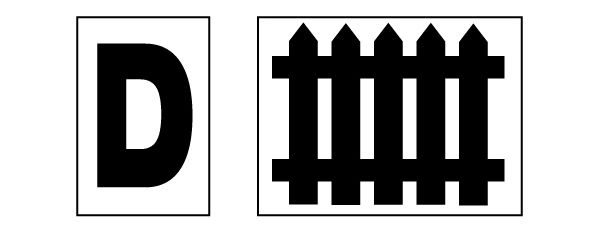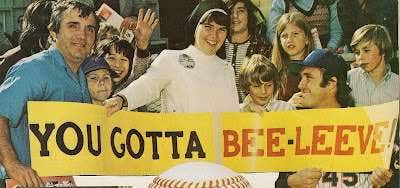We’ve heard it all before – how the club is at the
proverbial crossroads. After Thursday
night’s game they sit but a single game over .500. Considering the high-water mark of
five games over and just one game out of the playoff race on August 10th,
they’ve fallen off the pace fairly quickly in the few weeks that have
transpired since then. Many folks were celebrating the return to contention and are horrified to have them fall back to Earth. Those people don't realize how far forward mediocrity is considering where the club has been the past few years. Loyal reader Bill Metsiac reminds us that in 1973 the Mets were at the bottom of the pack as late as mid-September. Consequently, as the calendar prepares
to flip to the final month of the regular season, what do the Mets need to do to have a realistic shot at
the post-season?

During the 8-game win streak the Mets were scoring an
unsustainable 6.75 runs per game while only giving up 3. During the 16 games since then they have scored
4.31 runs while giving up 4.56. Consequently, their 6-10 record is not really a big surprise.
Lost in the nuclear implosion of Noah Syndergaard’s
worst-ever start was a sterling performance of the much-maligned bullpen. They provided 6 innings of shutout ball after
Thor’s 10 run (9 earned) debacle. One of
those innings as a 3-strikeout, no-hit, no-walk performance from none other
than Edwin Diaz. Other positive
contributors on this disastrous night included Luis Avilan, Paul Sewald and
Brad Brach. In total they provided 6 IP,
4 hits, 1 walk and 8 strikeouts. THAT’S
the kind of bullpen pitching the club has been needing all year long.
Also lost in the shuffle was the ongoing uselessness from
Juan Lagares, he of the 0-5 collar, dropping him to a 2017/2018 Frazier-like .213. He got the starting nod again on Thursday and now he's down to just .210. His partner in ineptitude, Todd Frazier, had
more hits in this game than seemingly in the past several weeks combined when
he entered the game as a pinch hitter, remained in, going 2-4 and raising his
season’s batting average to a less-than-lofty .229 before reverting to form on Thursday with another 0-fer collar.
So going forward, what must the Mets do to have any shot at
the playoffs? Well, the obvious answer
is that they need to score more runs than their opponents, but the starting
pitching which had been so good after the All Star break needs to rediscover
its magic. Marcus Stroman has been as
bad as early-season Jason Vargas, Syndergaard, Steven Matz and Zack Wheeler
have been odiferous of late (though Matz gets something of a pass as he’s been
on a roll until his last game). Only
Jacob deGrom has been old reliable, someone you know will keep you in the game, but even he succumbed to a two-homer losing effort on Thursday night.
The bullpen has been surprisingly good of late. Resurgences from Justin Wilson and Jeurys
Familia have been most welcome. A
healthy Luis Avilan is throwing the way they had hoped. As good as Brad Brach looked on Wednesday,
the fact is he’s thus far pitching to a fugly 7.50 ERA. Paul Sewald is, to most Mets fans, an instant
groan when he enters a game, but you might be surprised to learn that thus far
in his limited use he’s pitching to just a 3.00 ERA. Seth Lugo has been consistently good.
Edwin Diaz, unfortunately, has not been good, but since
blowing a save on his first game after the All Star break is pitching to a 4.50
ERA which is decidedly better than what we’ve seen. More importantly, during that streak he’s
saved 7 games, blown 1 save and continued to rack up strikeouts at a prodigious
rate – 83 in less than 50 innings pitched.
He’s holding batters to a good, not great .232 BAA.
So we know the starting pitching needs to get back on
track. We know the bullpen needs to
build on its recent success. What of the
hitters? We can see what Wilson Ramos,
Pete Alonso, Jeff McNeil, Michael Conforto and Amed Rosario are doing. They are fine.

The issue is the use of guys like Todd
Frazier, Juan Lagares and Joe Panik.
There is something to be said for the fine defense all of them bring to
the table, but their offense is pretty woeful.
I recently outlined that Lagares, for example, is on a pace for less
than 24 RBIs on a full season. Winning clubs
can’t sustain that lack of production, particularly when the pitching isn't holding the opposition to 3.5 runs or less.
Panik was cut by San Francisco for a reason. He’s hitting .267 with the Mets which is
close to his career .271 AVG and markedly better than the .235 he delivered to
the Giants. However, he has trended downward
for the past three years offensively and for a club challenged to score runs,
the return of Brandon Nimmo can’t happen soon enough as it will allow Jeff
McNeil to slot in at 2B. The equation is
Nimmo > Panik. That’s
undebatable.
The bigger question is what of Jed Lowrie? Is he going to be more productive than Todd
Frazier? Can he hold up to playing
nearly every day at 3B? For his last two
years in Oakland he has averaged .272/18/84.
That’s the kind of offensive shot in the arm the club can use right
now. Homering in his AAA rehab assignment last night suggests the time may indeed be near. JD Davis could also move to 3B
which is allegedly his natural position, but that would again return the unproductive Juan Lagares
to the regular lineup.
The wildcard in all of this is Robinson Cano who, since the
All Star break is hitting .284 with 6 HRs and 14 RBIs in just about a
month. THAT’S the kind of production the
Mets were expecting when they traded for him and his return would enable them
to consider JD Davis at 3B with Lowrie becoming a supersub, McNeil in the
outfield once again with both Frazier and Lagares where they belong on the bench, available for
late inning defense.



















